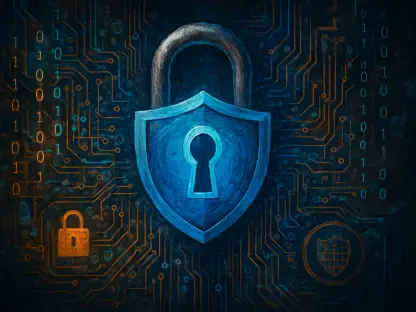Israel had seven cybersecurity unicorns in the first half of 2021, and one in three of the world’s unicorns in the field is Israeli. This is the result of ten years of efforts that started with the drafting of a national strategy that saw government supporting initiative and investment in this field, all within an ecosystem that is based on a uniquely Israeli characteristic. Let’s take a look at how Israel became the land of cybersecurity unicorns.
Achieving Amazing Performance
41% of the world’s investment in cybersecurity is made in Israel, an amount that has grown sharply over the past three years and allowed Israel to overtake the US. Those figures may seem surprising, especially since only 5% of the world’s cybersecurity start-ups are founded in Israel, according to the Tel Aviv Innovation Authority.
Let’s quickly review the amazing figures. According to the Israel National Cyber Directorate, Israeli cybersecurity companies raised $3.4 billion in 50 deals in the first half of the year. Seven of them became unicorns—private companies valued at over $1 billion. The money raised in the first six months of this year exceeds the amount raised by Israeli cybersecurity start-ups in the whole of last year—which in itself was a record-breaking $2.9 billion, the directorate said. The half-year figure accounts for 41% of the total funds raised by cybersecurity firms worldwide and is three times the amount raised in the corresponding period of the previous year, the data shows.
The Only Country in the World Where Cybersecurity Is Taught in High School
Isaac Ben-Israel, chair of the Cyber Week 2021 conference, which Tel Aviv University hosted in the second half of July, and director of the institution’s Interdisciplinary Cyber Research Center (ICRC), recalled how Israel came to develop the cybersecurity strategy that is now yielding fruit. He was asked a decade ago by then-Prime Minister Benjamin Netanyahu to draw up a plan for the development of cybersecurity in Israel, including measures for the following five years.
“We made a lot of recommendations to the government that started to be implemented in 2011. One of them was to teach cybersecurity in high schools. Israel is the only country in the world where cybersecurity is taught in high school. In 2011 there was no university in the world, I’m not talking about Israel, where you could get a degree in cybersecurity. My other recommendation was that every research university in Israel should have a degree in cybersecurity. I also recommended that every research university in Israel should open a cybersecurity research center,” he recounted.
Tel Aviv University established the first such research center, which now has more than 300 researchers. Of course, it all overlaps with Israel’s “unique start-up culture,” due in large part to the fact that Israel has a mandatory three-year military service that can be “treated like a school.”
The Money Just Keeps Pouring In
Israel is doing better than many other countries in the area of cybersecurity investment, and for a simple reason: they started doing this before everyone else. The fact that cybersecurity has become the subject of research in universities, where studies are published that can be read by everyone, has changed the facts of the matter.
“If we talk about investment in this sector, without the amounts allocated by governments, globally, in 2018, 18% went to Israel. In 2019, they reached 26%, in 2020, 31%, and in the first half of 2021, over 40%. That means more US dollars are invested in Israel than in the US in cybersecurity,” said Isaac Ben-Israel.
And Israel doesn’t stop there. In another decade, the country could be looking at breakthrough results in Artificial Intelligence since it’s currently working on a strategy to lead this field as well.
Integrating Young Workforce
Obviously, with the growth of the cybersecurity sector comes the problem of a skilled workforce that can no longer keep up with the pace of growth. But there’s a solution to that, too, which goes some way to breaking down social barriers.
“In Israel, we are now focusing on attracting young people who are not serving in the army, Israeli Arabs, 20% of the population, and the ultra-Orthodox. They don’t serve in the army, but we want them to enter the cybersecurity industry, which is hungry for manpower. It’s a win-win,” said Yigal Unna, director of the National Cybersecurity Directorate (INCD).
To this end, the INCD has developed, together with partner NGOs and educational institutions, four special programs that aim to discover and use talent from under-utilized areas of the population.
Israel has been piling one brick on top of another for the past decade in the field of cybersecurity—the foundation of which, like many others in that country, was laid out of a desire to defend against a host of new vulnerabilities. At the same time, it was all built against the backdrop of a start-up culture unique to Israel.









